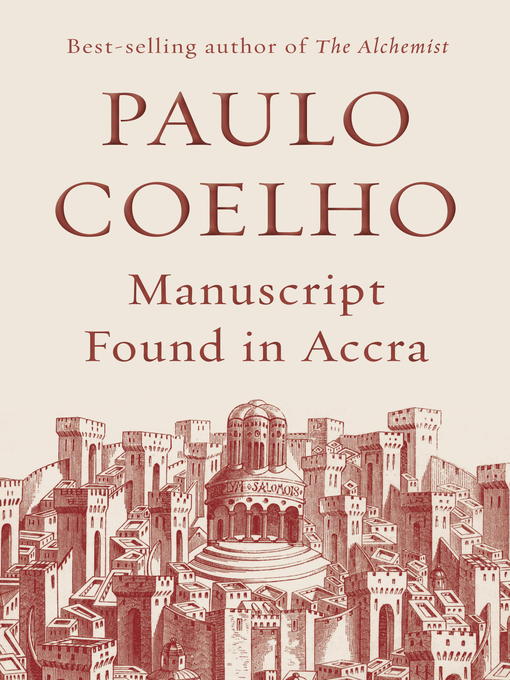
Manuscript Found in Accra
کتاب های مرتبط
- اطلاعات
- نقد و بررسی
- دیدگاه کاربران
نقد و بررسی

March 18, 2013
A self-help sheen hangs over this book by the internationally bestselling author of The Alchemist, which reads much more like a collection of bland aphorisms than a work of fiction. It is Jerusalem, the year 1099, and as French soldiers prepare to invade, a group gathers around a trite sage known as “the Copt.” The topics broached are wide-ranging and somewhat random: a young woman asks about solitude and the Copt gives her a circuitous answer: “If you are never alone, you cannot know yourself. And if you do not know yourself, you will begin to fear the void. But the void does not exist.” A boy, worrying he may be useless, is told: “Don’t try to be useful. Try to be yourself; that is enough, and that makes all the difference.” Another woman decides that the time is right to ask about elegance and is told that elegance is more about how one wears clothes than the clothes themselves. If Coelho is attempting parody, he has failed, this being both too long and too broad. The wisdom to be found here could be found in many other, better places. Agent: Sant Jordi Asociados (Spain).

March 15, 2013
Another treacly and pseudo-profound set of pronouncements, these from "the Copt," a Greek living in Jerusalem at the end of the 11th century. The conceit of the book is that, in 1974, Sir Walter Wilkinson discovered a papyrus manuscript written in Arabic, Hebrew and Latin. (Coelho is, if nothing else, eclectic in his cultural attributions.) This manuscript, purportedly revealing the wisdom of the Copt on the eve of the capture of Jerusalem by French crusaders in 1099, is in the form of call and response from various townspeople--Muslims, Christians and Jews. A sample setup: "And someone said: 'When everything looks black, we need to raise our spirits. So, talk to us about beauty.' " This is all the opening the Copt needs to pontificate in a style reminiscent of warmed-over Kahlil Gibran: "All the beings created under the sun, from birds to mountains, from flowers to rivers, reflect the miracle of creation." Or, "to those who believe that adventures are dangerous, I say, try routine; that kills you far more quickly." Or, "[e]verything is permitted, if everything is accepted." Coelho's style is terse and epigrammatic, but despite the framing device, there's really no narrative here, only a series of assertions that reflect the Copt's surprisingly New-Age sensibilities. On the other hand, perhaps this isn't so surprising since at the beginning of the manuscript, the Copt announces that he "do[es] not believe very much will change in the next thousand years." This "novel" will appeal to those who like their philosophy predigested yet served on platters.
COPYRIGHT(2013) Kirkus Reviews, ALL RIGHTS RESERVED.

April 15, 2013
Coelho's quietly beautiful book is difficult to categorize. Unlike many of his novels, it is not an allegory, nor does it revolve around a mystical or physical pilgrimage. Instead, it consists of a series of queries posed by a population under siege and the powerfully simple, yet evocative, answers provided by an essentially unidentified wise man. As Jerusalem is surrounded by belligerent Crusaders in AD 1099, its diverse citizensJews, Muslims, and Christians, who have lived together in peace for centuriesgather in the square to seek the counsel of the Greek, known familiarly as the Copt. The Copt advises them to speak of their daily lives and search their hearts, minds, and souls for questions pertaining to universal truths. As the Copt thoughtfully answers questions posed about a variety of everyday subjects, including solitude, love, utility, luck, miracles, beauty, sex, anxiety, grace, and elegance, he bequeaths to his audience an invisible sword with which to fight intolerance and ignorance. HIGH-DEMAND BACKSTORY: The sublime Coelho continues to break stylistic boundaries with this series of spiritual musings grounded more in history and morality than in his trademark brand of mysticism.(Reprinted with permission of Booklist, copyright 2013, American Library Association.)

























دیدگاه کاربران